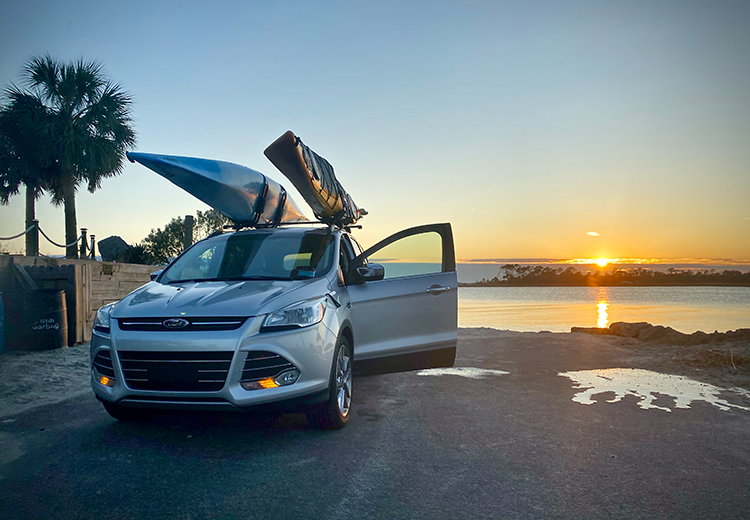Protecting Your Vehicle on the Coast
Living in coastal Georgia offers a lot of perks. We have 100 miles of coastline with tidal marshes, islands, hammocks, beaches, bays and sounds. We have easy access for boating, fishing, paddle boarding, camping, sea kayaking, kayak fishing or just lounging in the sun. But, while life along the coast and all the fun that comes with it may seem ideal, it’s not always easy on your vehicle or its finish.
The environmental factors present in the coastal Lowcountry that provide enjoyment may also cause or accelerate the corrosion and damage to your vehicle’s finish.
- Flood water can wreak havoc on your vehicle’s moving parts and undercarriage at any time, but if you drive through standing water containing salt, then the damage is even worse. Parts of the vehicle, including brake calipers, nuts, and bolts can corrode. Saltwater floods are among the largest factors in corrosion of vehicles.
- Particles from the ocean can have devastating effects on your car. By parking near the shore, you expose your car to sea spray. Sea spray is made of the salty airborne particles formed on the ocean and ejected into the atmosphere in waves and carried by the wind. These can have a corrosive effect on your car. A publication by the Transportation Research Board in the US identifies sea spray as one of the leading causes of vehicle corrosion in many northern American states.
- The water that drips from our kayaks, canoes, paddleboards, and other aquatic toys that we may strap to the tops of our vehicles can also destroy the finish.
- Driving on sand and using boat ramps exposes vehicles and trailers to sand and saltwater, which can be damaging to your vehicle’s finish.
So what can you do?
Preventing Ocean-Related Car Damage
If you are moving to a coastal location, or if you have recently purchased a new car that you want to protect from the coastal elements, there are steps you can take to help slow salt damage to your vehicle. If you are just a few blocks from the beach, try these simple practices to help you prevent ocean-related damage to your vehicle:
- If you live on the water, park in a garage or use a vehicle cover as often as you can.
- Wash and wax your vehicle. A good rule of thumb: Each spring and fall do a deep clean using a clay bar, then reapply wax and poilsh
- Rinse car as soon as possible after loading kayaks, paddle boards and the like. Be sure to rinse those as well.
- Avoid getting your vehicle in sandy areas, and be sure to keep your vehicle out of the water as much as possible when launching or loading your boat. If you do drive on sand or into salt water, rinse the underside of the car with a hose after as soon as you can.
- If you have a trailer, rinse the entire trailer after getting the boat back on the trailer. Grease your trailer hubs.
Last, but certainly not least, make sure to properly wash your vehicle often, and maintain your wax and polish. The wax and polish on your vehicle act as an effective barrier to splashes and dirt.
Living near the ocean may have negative effects on your car, but if you understand why the damage happens and take the appropriate steps to help limit or prevent it, you can enjoy coastal living with minimal corrosion to your vehicle.










